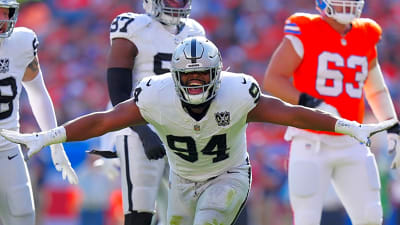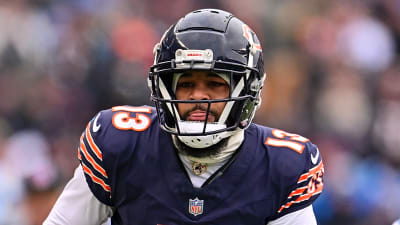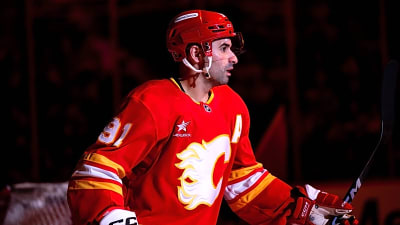The English football pyramid has long been a machine for turning young dreams into stardom. But few clubs have carried the label of “talent factory” as proudly—or as precariously—as Tottenham Hotspur. From White Hart Lane to the state-of-the-art Tottenham Hotspur Stadium, the club has walked a fine line between producing homegrown stars and chasing instant success.
It’s a question that resonates far beyond North London. Just as football fans worldwide pore over the intricacies of an Australian online gaming overview, Spurs supporters dissect every aspect of their youth setup, wondering whether the club can reclaim its status as one of England’s premier breeding grounds for elite talent.
Spurs’ tradition of producing stars
Tottenham’s academy history reads like a highlight reel of English football. The club has delivered some of the Premier League’s most respected names, many of whom spent their formative years under the Spurs’ badge.
Ledley King, perhaps the purest symbol of Tottenham’s academy promise, was an elegant centre-back whose career was tragically curtailed by knee injuries. Yet his intelligence and composure marked him out as one of the best defenders of his generation. King embodied everything the Spurs hoped to produce: loyalty, class, and talent.
Then came a golden thread stretching into the modern era. Players like Andros Townsend, Ryan Mason, and Tom Carroll all emerged from Tottenham’s ranks, earning national recognition even if their Spurs careers were mixed.
But no story has defined Tottenham’s academy more than Harry Kane’s. Once overlooked as a slow-footed youngster, Kane honed his craft through a series of lower-league loans before exploding into one of the Premier League’s most feared strikers. His journey from youth hopeful to England captain remains the ultimate advertisement for Tottenham’s ability to nurture raw talent into world-class quality.
The challenge for Spurs is to ensure Kane doesn’t become the last great chapter in this proud tradition.
The current state of the academy under Simon Davies
Since 2023, the stewardship of Tottenham’s academy has fallen to Simon Davies, a man with both coaching pedigree and personal experience of the pressures facing young footballers. A former Wales international and Manchester United youth coach, Davies inherited an academy brimming with potential but in need of renewed purpose.
Under Davies, Tottenham have also strengthened ties between academy staff and first-team management. The goal is clear: smoother transitions for players graduating from youth football to the senior squad. Youngsters train alongside established stars more frequently, offering a glimpse of the standards required at the top level.
Yet Davies faces an uphill climb. Despite investment in infrastructure, Tottenham’s academy pipeline hasn’t delivered a first-team regular since Oliver Skipp and Japhet Tanganga broke through several seasons ago. There’s hope, but there’s also frustration that other clubs seem to have stolen a march on Spurs’ historic production line.
Promising prospects to watch in the next 2-3 years
While the immediate pathway to stardom has narrowed, Tottenham’s academy still houses talents capable of reigniting its reputation.
Top among them is midfielder Alfie Devine, who made headlines as Spurs’ youngest-ever goalscorer in an FA Cup tie at just 16. Now 19, Devine blends vision and aggression, drawing comparisons to players like Mason Mount. His composure on the ball suggests he could eventually challenge for a place in Postecoglou’s midfield.
Jamie Donley, another name gathering buzz, operates as a versatile forward. The 18-year-old has been prolific at the youth level and impressed during pre-season outings. His technical ability and movement hint at a player who could slot into the Spurs’ attacking system in the coming years.
Further back, centre-back Ash Phillips—signed from Blackburn—brings physicality and maturity beyond his years. At just 18, he has already logged senior minutes in the Championship and could be groomed as a successor to players like Cristian Romero.
Even outside these standouts, Spurs fans should keep an eye on:
- Yago Santiago: A creative winger with an eye for goal.
- Mikey Moore: Touted as one of the most promising English talents in his age group.
- Nile John: A box-to-box midfielder showing flashes of top-level potential.
This next crop could prove crucial to the academy’s redemption arc.
Poaching from rivals, Premier League pressure
Tottenham’s academy ambitions don’t exist in a vacuum. Modern football is ruthless, and Spurs face significant challenges on multiple fronts.
First, there’s the threat of poaching. English academies increasingly lose young prospects to bigger paychecks or promises of faster first-team routes elsewhere. Manchester City, Chelsea, and Arsenal have all lured talent away from Hotspur Way. Cross-town rivalries spill into the youth ranks, where lucrative contracts and the appeal of Champions League football can tempt families and agents alike.
Premier League pressure compounds the problem. Clubs chasing European places or fighting relegation rarely have the luxury to blood young talent. For managers under constant scrutiny, fielding an academy graduate feels riskier than leaning on a proven international signing.
Additionally, Brexit regulations have tightened the recruitment of under-18 foreign players, shrinking the pool of young talent that clubs can draw from. Tottenham, who once scouted heavily in Europe for teenage prospects, now must rely more on domestic development.
It’s a delicate balancing act. The club’s reputation for stylish football and youth development risks erosion if the conveyor belt of talent doesn’t pick up speed again.
How Postecoglou’s philosophy might open doors for youth
Into this complex picture steps Ange Postecoglou, Tottenham’s charismatic new head coach. The Australian has already made waves with an aggressive, possession-based style that contrasts sharply with the caution of recent managerial regimes.
Postecoglou’s philosophy could be the catalyst Tottenham’s academy desperately needs. His emphasis on brave football suits young players eager to showcase creativity rather than playing conservatively to avoid mistakes.
Moreover, Postecoglou’s track record at Celtic suggests a willingness to give youth a chance. At Parkhead, he integrated academy products into a title-winning side, showing trust that could bode well for Spurs’ young hopefuls.
Early reports indicate closer collaboration between the senior squad and academy under his watch. Training sessions have been opened to promising youngsters, and Postecoglou has spoken publicly about the importance of building pathways for homegrown talent.
There’s cautious optimism that this environment could help Alfie Devine, Jamie Donley, and others find genuine opportunities. A manager willing to back youth might be exactly what Spurs need to rediscover their academy’s former glory.
Success stories vs. cautionary tales
Tottenham’s academy history is rich with both triumphs and heartbreaks. For every Harry Kane, there’s a John Bostock—a once-hyped prodigy whose potential fizzled amid injuries, loan spells, and inconsistent opportunities.
The list of cautionary tales underscores the stakes:
| Player | Outcome |
| Harry Kane | England captain, club legend |
| Ryan Mason | Promising career cut short by injury |
| John Bostock | Early hype, career stalled |
| Andros Townsend | Solid pro, frequent transfers |
The club’s challenge is ensuring future stars follow the Kane trajectory rather than slipping into obscurity. Developing talent isn’t simply about training technique. It demands a support network to handle pressure, media attention, and the volatile nature of professional sport.
More must-reads:
- No Messi, no problem: MLS thumps Liga MX in All-Star Game
- Browns' Joe Flacco, Kenny Pickett open up about competing for starting job
- The 'Multiple 100-RBI MLB seasons' quiz
Breaking News
Trending News
Customize Your Newsletter
 +
+
Get the latest news and rumors, customized to your favorite sports and teams. Emailed daily. Always free!








